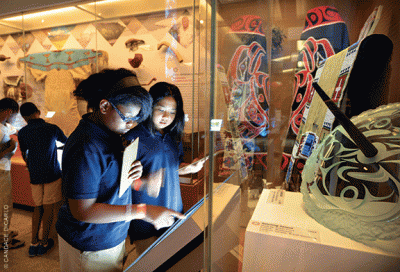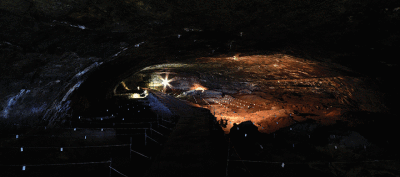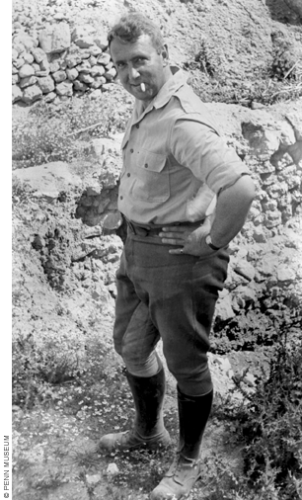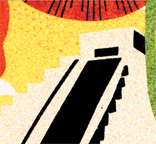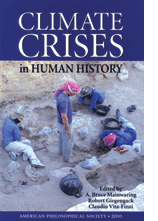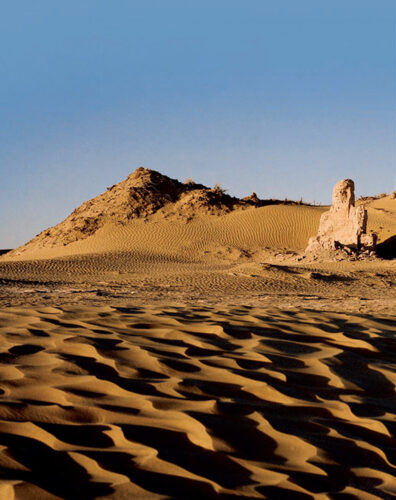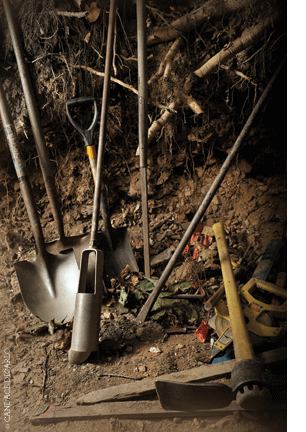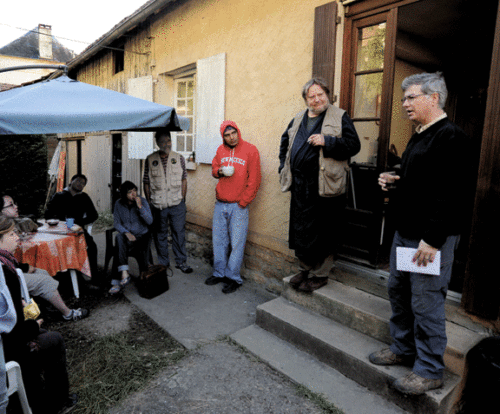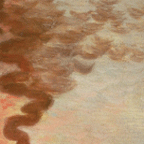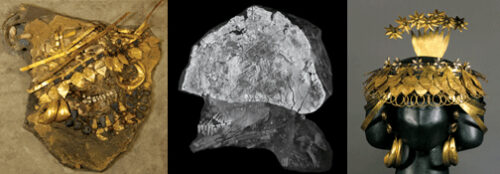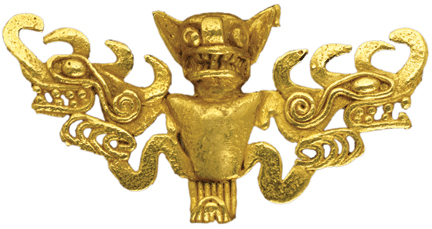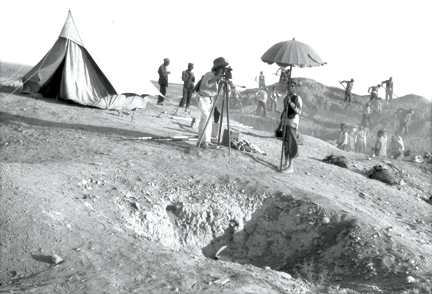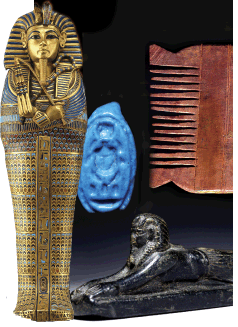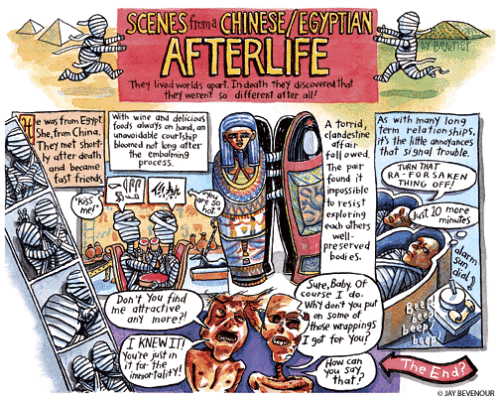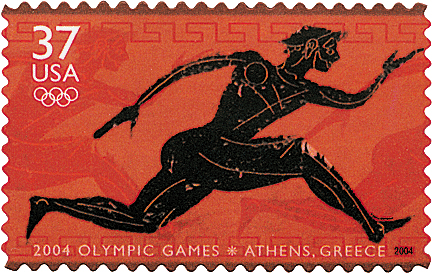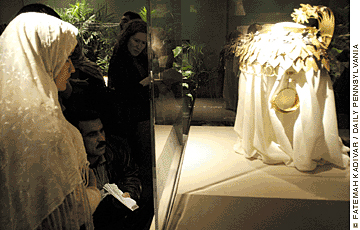“Know That We Are Still Here”
With the new exhibition, Native American Voices: The People—Here and Now, the Penn Museum and a team of Native American advisors and collaborators aim to “transform your understanding of Native America today.”
The Forgotten King
Lost dynasty found at Penn Museum Egypt dig.
Finding an Old Flame
Michael Chazan C’85 has been blazing a trail back in time from Biblical to Lower Paleolithic archaeology.
Exotic Animals in Roman Mosaic at the Penn Museum
Installing an ancient mosaic at the Penn Museum.
Trowel, Cloak and Dagger
Excavating Gordion was not the most exciting thing Rodney Young did.
Time for the Maya
No, the ancient Maya did not predict that the world will end in December 2012. Yes, the Penn Museum is taking advantage of the popular fascination with that distinctly North American misinterpretation of the Maya calendar to mount a wide-ranging exhibit examining Maya notions of time and much more about this rich, still-thriving culture.
Climate Change, Dark Ages, and Armchair Disaster Prediction
Looking to the past for lessons on climate change
When West Went East
Victor Mair first encountered the Bronze Age mummies of China’s Tarim Basin 23 years ago. He—and others—have been trying to figure out what those people were doing there ever since.
Bones Beneath the Tracks
In the summer of 1832, 57 Irish laborers died suddenly while building the first railroad in Pennsylvania. Alumnus Bill Watson and a host of other Penn people have been trying to find out what really happened. And they’re getting close.
On Hearths, Ancient and Modern
In which the author takes a break from the rigors of her own ethnographic research in France’s Dordogne region to visit with eminent Penn archaeologist Harold Dibble as he plumbs the mysteries of early human and Neandertal behavior—and plots his next gourmet meal.
The Father of Underwater Archaeology Returns
“If the shipwreck is in the water, why would I stay on land?”
The (Continuing) Tale of Troy
Ever since Heinrich Schliemann “discovered” Troy in the 1870s, archaeologists have searched for proof that Homer’s Iliad was based on historical fact. Penn Museum Deputy Director C. Brian Rose, who has led excavations at the site for more than two decades, may have found it.
Man, The Drinker
Biomolecular archaeologist and Penn Museum researcher Patrick McGovern Gr’80 has found some of the oldest alcoholic beverages known to history, and he wants you to take a glug. They might just be responsible for civilization as we know it. (Not to mention your next hangover.)
Life and Death in Ur
Museum mounts new show on Iraq’s Ancient Past
Finding Zeus
New Museum finds from the B.Z.—“before Zeus”—era
There’s Gold in That River
Pre-Columbian gold objects shine at Penn Museum
Digging Iran
Rediscovering the first American archaeological expedition to Persia.
The Radical and the Restorer
As the international blockbuster King Tut exhibition comes to Philadelphia’s Franklin Institute, the Penn Museum has unveiled an eye-opening companion show on the radical religious and political experiment imposed by the boy-king’s predecessor (and putative father), the Pharoah Akhenaten.
The Next Internet and the Museum of Ideas
How Internet2 is transforming archaeology
Adventures on the Arabian Sea
Better luck next time for Bronze Age reed-boat
Life, Death, and the Afterlife in Ancient China and Egypt
How Egypt’s other 80 percent lived
What mad pursuit?
Window, Jul|Aug 2004
Treasuring the Past— and Saving it for the Future
Museum lays out welcome mat for Iraqi visitors
Operation Iraqi Heritage
Museum Web site helps recover Iraq antiquities.

